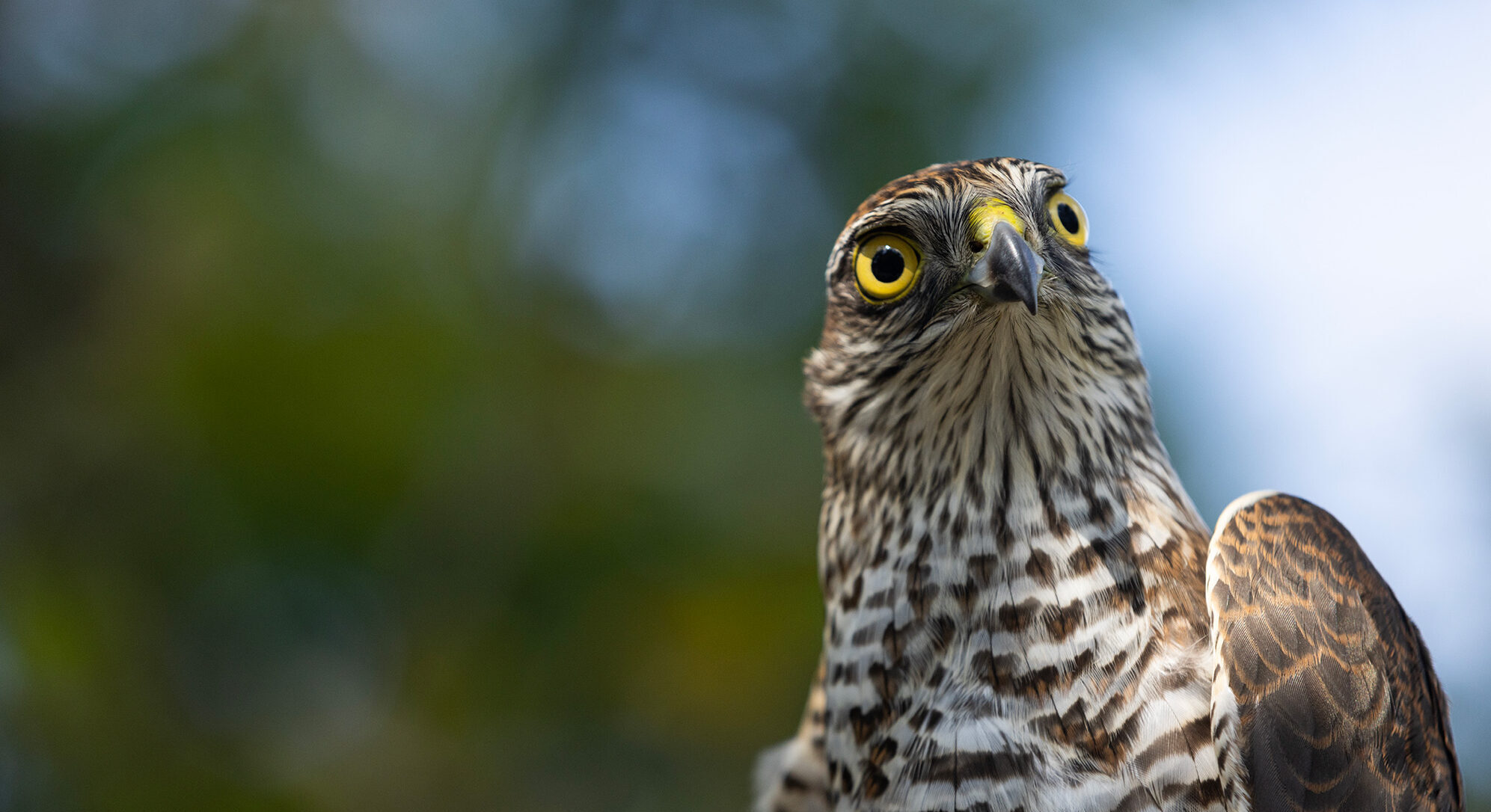 " alt="Supporting the conservation of raptors in Georgia and the protection of birds of prey during migration">
©All rights reserved Stephanie Foote / Fauna & Flora International
" alt="Supporting the conservation of raptors in Georgia and the protection of birds of prey during migration">
©All rights reserved Stephanie Foote / Fauna & Flora International
Supporting the conservation of raptors in Georgia and the protection of birds of prey during migration
Grantee: Fauna & Flora
Location: Georgia, Europe
Grant Cycle: 2023 – 2026
Type of Grant: three-year program support,
Environment & Biodiversity Protection
Website: fauna-flora.org
Environment & Biodiversity Protection
Established in 1903, Fauna & Flora is the world’s oldest international conservation organisation. For more than 120 years Fauna & Flora has been working with its partners around the world to protect and conserve threatened species and ecosystems. The Nando and Elsa Peretti Foundation (NaEPF) commitment to protecting the environment dates back to its founding in 2000, and Fauna & Flora was one of the first organisations the NaEPF partnered with to help preserve the world’s biodiversity. Since 2001, the NaEPF has worked with Fauna & Flora on several projects, and in 2023 the NaEPF renewed its support for the organisation with a grant of over EUR 3 million that will fund six new projects to preserve the environment and biodiversity worldwide.
Biologically, Georgia is one of the world’s richest and most endangered terrestrial ecosystems. It is part of the Global 200 Ecoregion network and one of only three European Endemic Bird Areas. The country is afforded relative isolation by both mountain and sea and, given its location at the convergence point of three major biogeographical regions (Europe, Asia and the Middle East), it harbours a unique combination of species, many of which occur nowhere else. It has a particularly extraordinary diversity of avifauna, with over thirty-five species of raptors residing in or migrating through the country, and countless other migrating and resident birds. The mountains of the Greater and Lesser Caucasus and the grasslands of Eastern Georgia are home to numerous species of vultures, eagles, falcons, harriers, and buzzards, many of which are extremely threatened globally.
For this reason, the autumn migration of birds of prey from Eurasia to Africa is a spectacle to behold. There are several migratory hotspots in the Caucasus region, with the Batumi Bottleneck in southwest Georgia acting as most important ones. Millions of raptors fly through the bottleneck bi-annually, but the route is risky business for the birds. The region’s hunting culture and the widespread perception that raptors are vermin means that thousands of raptors get shot along the migration route.
Fauna & Flora has been diligently working on the ground to support the raptors conservation in Georgia, and to protect them from Illegal Wildlife Trade (IWT) for national and international commerce. Success does not happen overnight, but FFI’s committed approach to working sustainably through communities and partners over the last 25 years has created an environment of trust with local stakeholders. With the support of the Nando and Elsa Peretti Foundation, in the past two years, Fauna & Flora has established a partnership with Tbilisi Zoo and supported the construction of a raptor rehabilitation centre that will help birds recover and be released into the wild again. This centre is crucial in protecting birds that have been confiscated during trafficking incidents and ensures that they form part of the evidence brought before courts in trafficking cases. Fauna & Flora has also provided beginner training to zoo staff for better bird handling practices, supported governmental organisations for the improvement of law enforcement against IWT of raptors, trained young falconers on responsible falconry practices, written proposed legislation on responsible falconry practices, provided expert input to the newly drafted hunting legislation, and operationalised a Mobile Response Team (MRT) to respond to injured raptor emergency calls. Furthermore, Fauna & Flora worked with communities in Georgia to educate them on the importance of raptor conservation to shift the mentality around raptors in the region and for long-lasting raptor conservation.
The next steps in conserving Georgia’s raptors are to ensure that the animals can access migratory flyway zones without the risk of being hunted, and to protect bird hotspots in the country so that the animals can thrive. It’s a long-term project that will take approximately 20 years to realise. Medium and long-term goals in support of this vision are: to dramatically reduce the illegal hunting of raptors and other birds in migratory, residential and resting hotspots across the country and region; for the relevant transboundary and inter-Georgian regional departments to work seamlessly to stop raptors and other birds from being illegally trafficked; for the country to have a fully functioning raptors’ rescue and rehabilitation programme to mobilise the national rescue process and to provide a means for holding confiscated birds safely during litigation.
Hunting, and especially the hunting of birds, is an important cultural pastime. Hunting is the main cause of death of thousands of birds yearly in Georgia, especially during migration seasons. To effect long-term change, trust must be slowly built with local communities and stakeholders (e.g. hunters, farmers, and falconers). This is a crucial first step to developing a movement to decrease the impact of illegal hunting on raptors and other birds.
The project funded by the NaEPF will contribute to establishing a system of participatory biodiversity conservation (including tackling hunting issues). It will prioritise both government and community engagement so that local stakeholders take a leading role in achieving project aims.
“I have a great love for birds. In each of my homes, in Spain, in New York and in Rome, there is always a dish with food for them. I don’t disturb the swallows that nest under the roof, I wait for them every spring. They give me a sense of freedom but also of fragility because they are always in danger during their travels and are in danger above all because of us.”
Elsa Peretti



